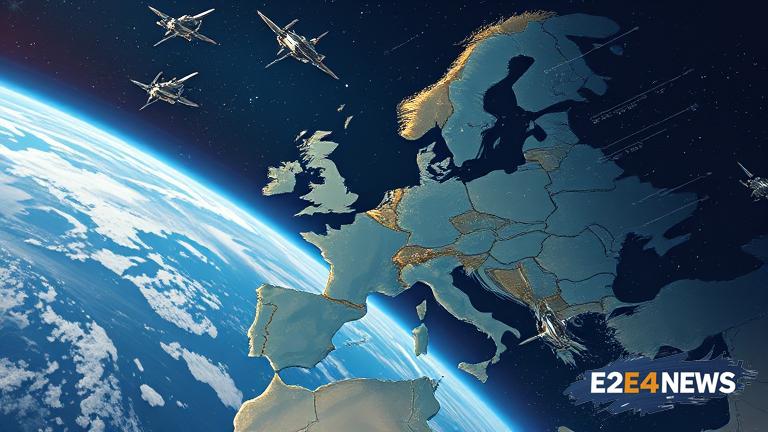The European defense industry has long been plagued by a gap in defense technology, leaving the continent vulnerable to external threats. However, a new wave of space firms is emerging to address this issue. These companies, such as Airbus and Thales, are leveraging cutting-edge technologies like artificial intelligence, cybersecurity, and satellite communications to develop innovative defense solutions. One of the key areas of focus is space-based surveillance, which enables real-time monitoring of potential threats. New space firms are also developing advanced propulsion systems, enabling faster and more efficient deployment of defense assets. Furthermore, the use of satellite-based communications is becoming increasingly important for defense operations, providing secure and reliable connectivity. The European Space Agency (ESA) is also playing a crucial role in supporting the development of new space firms, providing funding and resources for research and development. Additionally, the ESA is working closely with the European Commission to develop a comprehensive space strategy, which includes defense as a key component. Despite the progress being made, there are still significant challenges to overcome, including the need for greater investment in research and development. Moreover, the European defense industry must also contend with the increasing threat of cyberattacks, which can compromise defense systems and put lives at risk. To address this, new space firms are developing advanced cybersecurity solutions, including encryption and intrusion detection systems. The use of artificial intelligence is also becoming increasingly important, enabling defense systems to respond quickly and effectively to emerging threats. However, the development of AI-powered defense systems also raises important ethical questions, including the potential for autonomous decision-making. As the European defense industry continues to evolve, it is likely that new space firms will play an increasingly important role. These companies are bringing a new level of innovation and agility to the industry, enabling the development of cutting-edge defense solutions. Moreover, the use of commercial off-the-shelf (COTS) technologies is also becoming more prevalent, reducing costs and enabling faster deployment of defense systems. The European Union’s (EU) Permanent Structured Cooperation (PESCO) initiative is also providing a framework for cooperation between member states, enabling the development of joint defense projects. However, the EU must also contend with the challenges posed by Brexit, which has created uncertainty and disrupted defense cooperation. Despite these challenges, the European defense industry remains committed to developing innovative defense solutions, leveraging the latest technologies to stay ahead of emerging threats. The development of new space firms is a key component of this strategy, enabling the creation of cutting-edge defense systems that can respond quickly and effectively to emerging threats. As the global security landscape continues to evolve, it is likely that the European defense industry will play an increasingly important role, leveraging the latest technologies to protect the continent and its citizens. The use of space-based technologies is likely to be a key component of this strategy, enabling real-time monitoring and response to emerging threats. Furthermore, the development of advanced cybersecurity solutions will be critical, enabling the protection of defense systems from cyber threats. In conclusion, the emergence of new space firms is a positive development for the European defense industry, enabling the creation of innovative defense solutions that can respond quickly and effectively to emerging threats. However, there are still significant challenges to overcome, including the need for greater investment in research and development and the increasing threat of cyberattacks.
